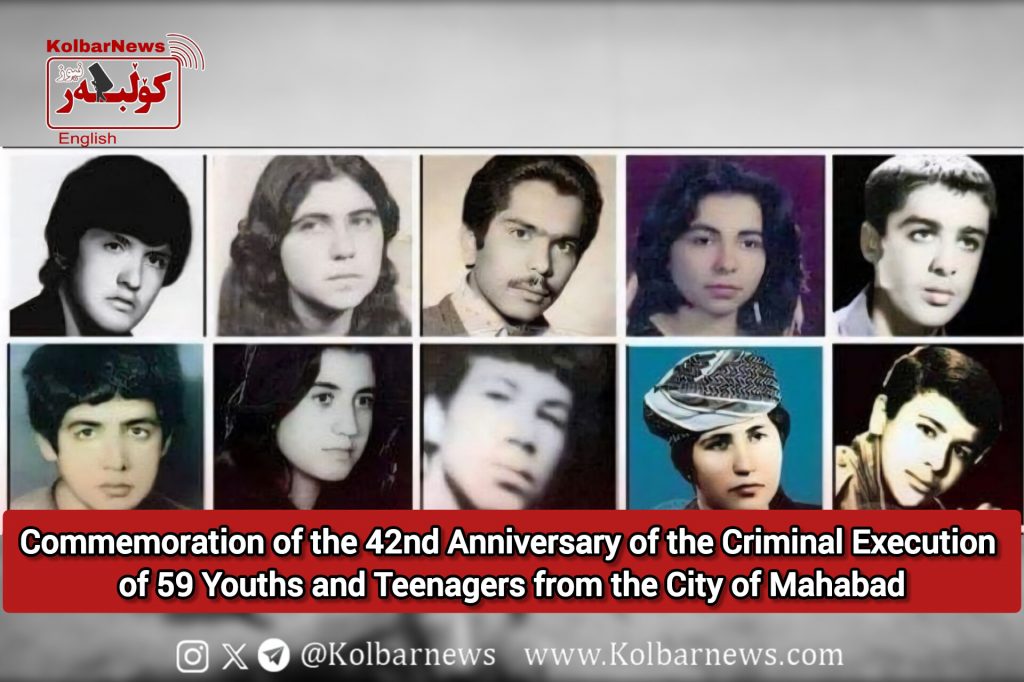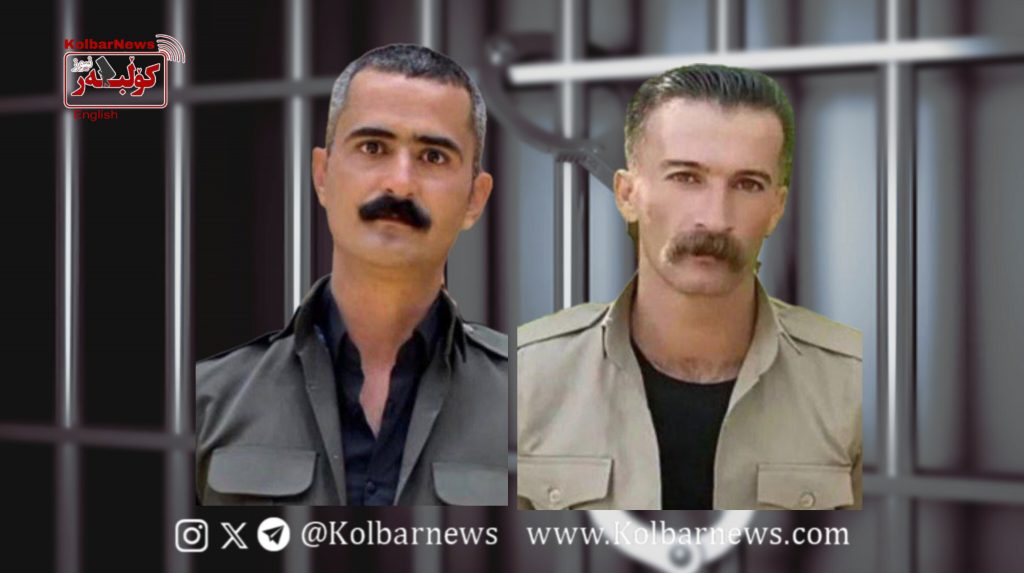
On June 2, 1983, revolutionary Kurdistan witnessed yet another one of the countless crimes committed by the Islamic Republic regime. Forty-two years ago on this day, 59 fighters and teenagers from the city of Mahabad were executed by firing squad by the regime’s executioners and buried in unmarked graves. The Islamic Republic carried out this mass execution to intimidate the people of Kurdistan and to take revenge on the resilient population of Mahabad.
Most of the executed had been randomly abducted and taken hostage off the streets of Mahabad in March and April 1983. Some of them were under 18 years old, and several were high school students. On June 2, 1983, the people of Mahabad were shocked to see a statement posted throughout the city by the local governor’s office listing the names of the 59 executed individuals. The then-governor of Mahabad, Hamidreza Jalaeipour, who later became affiliated with the so-called “reformist” faction within the regime, had ordered the distribution of this announcement.
At that time, Mohammad Boroujerdi, a leading strategist for the Islamic Revolutionary Guard Corps (IRGC) in its war against Kurdish Peshmerga forces, had been killed. His death was a major blow to the regime, as he had been the main commander directing IRGC operations in western Iran. His killing provoked a strong reaction from top regime officials. Prime Minister Mir-Hossein Mousavi harshly attacked Kurdish political groups and demanded the regime take the strongest possible action against them. Akbar Hashemi Rafsanjani also echoed threats against Kurdish parties. Mohsen Rafighdoost, then IRGC Minister, spoke of vengeance.
The regime, wounded on the battlefield by the Peshmerga, lashed out like a wounded snake, deciding to take revenge on the people of Kurdistan particularly the defiant citizens of Mahabad by spilling the blood of kidnapped and unlawfully imprisoned youth and teenagers.
Among those directly responsible for this crime were:
Hamidreza Jalaeipour, governor of Mahabad. Mohammad Ebrahim Sanjaghi, commander of Hamzeh Headquarters. Ali Akbar Nategh-Nouri, Minister of the Interior. Hossein Sheikh al-Islam Attar, then-governor of West Azerbaijan and a suspect in the assassination of Shapour Bakhtiar. Gholamreza Hassani, Friday Prayer Leader of Urmia and implicated in the massacres in Qarna and Qalatan. Seyyed Hossein Mousavi Tabrizi, Attorney General. Ali Sayad Shirazi, Ground Forces Commander of the Army.
These 59 detainees were transferred to the city of Tabriz, where, in a matter of minutes and without any evidence or proven charges, they were sentenced to death and executed. Their families were never informed of their burial sites.
This was neither the first nor the last time the criminal Islamic Republic regime unleashed mass executions and turned prisons into slaughterhouses. These atrocities continued throughout the 1980s, reaching their peak in 1988, and have never truly ceased.
The execution of 59 young people, premeditated as an act of revenge against the people of Mahabad, remains one of the most barbaric examples of this violence. In response to this crime, on June 7, 1983, following a call by Komala, the Democratic Party of Iranian Kurdistan, and Mamosta Sheikh Ezzeddin Hosseini, all of Kurdistan went on strike. The strike lasted for several days in Mahabad and was the first general strike to be organized jointly by Kurdish political forces and supported unanimously by the people, a model followed by other significant actions in later years.
The victims of the June 2, 1983 massacre were: Gholamreza Barezi, Hassan Jahanian, Ali Baneyan, Mohammad Aliali, Mohammad-Amin Safa, Homayoun Niloufar, Mahmoud Riazi, Mohammad Hosseini, Abbas Hosseinpour, Kazem Khatouni, Ali Mazneh, Abdullah Tahririan, Rahman Rahimi, Ali Golparast, Mostafa Esmati, Khaleq Barzani, Yousef Ayazi, Kamal Chavoshini, Hassan Rahmanian, Khaled Rahimi-Azar, Khaled Safaei, Seyyed Ebrahim Ahmadi, Mohammad Masoudi, Mohammad Aboubakri, Vafa Elyasi-Mansour Janah, Mohammad-Amin Ahmadi, Mohammad Salimi, Fereydoun Shangeh, Ali Bazian, Khazr Rangin, Aboubakr Shokri, Mashallah Naderi, Hejar Karimi, Kamal Karimi, Karim Rahimian, Yousef Habibpanah, Mohammad Farough Bazyar, Ebrahim Amini, Saleh Mam-Ebrahimi, Shokri Naderi, Mostafa Faghri, Ali Ghavareh, Ali Salahi, Molla Hassan Lajvardi, Soleiman Hassanzadeh, Yousef Hassanzadeh, Karim Kaveh, Seyyed Mahmoud Seyyed Mahmoudi, Hamed Mahmoudkandi, Hossein Kalahri, Abbas Yousefi, Siamak Saqzi, Ali Abadeh, Kamran Zahir Hejazi, Saleh Farhudi, Maqsood Mahmoudi, Ahmad Karoubi, and Rahman Khezrpour.
As we approach the anniversary of this heinous act, we honor the memory of the victims and commend the courage and resilience of their proud families.

